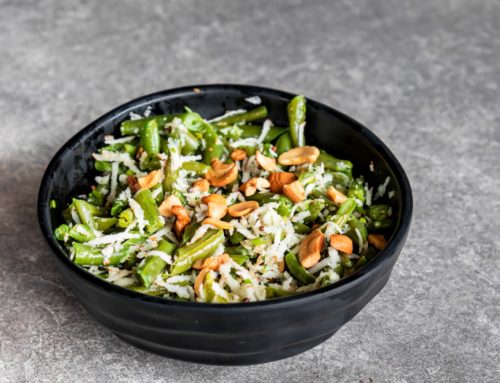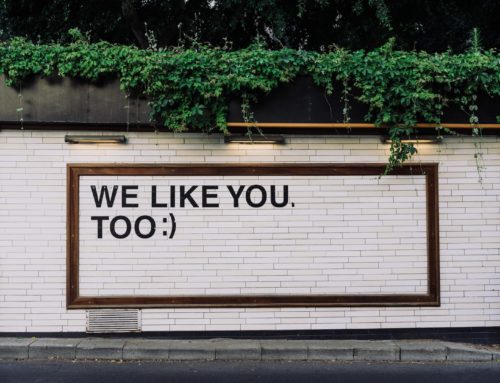Minimalism. It’s the buzz word that got all the attention a few years back, at least as I experienced it, and a term that evokes the very particular image to my mind’s eye of a millennial dressed in white and cream linen sitting on the floor of their empty New York apartment.
I am not a minimalist by definition — not even close — but I do embrace a fair few of their principles in my day-to-day life and try to implement consumerism rejecting practices where and when possible.
For some context, I live in London, and work in Soho, just off of Carnaby Street and connecting to the rest of the city’s shopping district. On my morning commute I am surrounded by flashy cars, expensive luxury brands, and a culture of influencers that have somehow (and rather brilliantly, no doubt) managed to capitalize off of their own personal style.
I’m not unique in this way. It doesn’t matter where in the world you are, I can guarantee that you’re being bombarded with details of the latest trends, or receiving ads in the mail for the hottest! new! deals!
I mean, social media itself has become an advertising agency for every company to exist in the 21st century, and it’s truly and terrifyingly inescapeable.
In reality, we all know that happiness can’t be found on a high-street, but fighting to be free from the grip of consumerism is one of those things that is far easier said than done. In fact, I could also write an entire article on how ethical consumption under capitalism can never exist, but will leave the politicizing for another time.
The aim here isn’t to never give in to the pressures of consumerism or to never buy anything ever again. Instead, it’s to focus on reducing excessive consumption, with excessive meaning anything that goes beyond neccesity.
Here are 8 reasons to reject what consumerism is trying to sell you (at least for the most part):
- You will save money
You might think this one goes without saying, but I would emphasize that we could all use the reminder that every penny spent on unnecessary thingsis an extra penny we don’t have saved for necessities, holidays, getaways, gifts, and god-forbid, emergencies.
By committing ourselves to putting a stop to the mindless spending — even if that just means takeaway coffees, or the special 2-for-1 offer that talked you into buying something you don’t need for the house — you will save a whole lot more than you might think.
2. You will value the things you already have more
Look around your house! Your living room shelves are probably stocked, bedroom and bathroom drawers are filled, and if you’re anything like me, you likely have more clothes than hangers in your wardrobe, and subsequently rely on the laundry basket always being half full to even cope.
The key with eliminating excessive consumption is that if it can’t be categorized as a need — i.e. I need more hangers — then, naturally, it can only be a want — i.e. I want more clothes — and can, thus be declined.
You will begin to value the things you already have more when you can appreciate that they, too, were once wants and not needs, and that if you had to live without them, you could (but, oh isn’t it nice you don’t have to!)
3. Your self-esteem will increase
This is a big one for me. You see, I’ve started to notice that as soon as I decide to ‘treat myself’ by purchasing something I don’t need, I immediately feel the urge to spend more. It’s like suddenly I’ve given a little bit of power to the voice inside my head that tells me ‘I deserve it,’ and it craves more.
The thing is, before I’m even able to separate myself from these feelings, I’m struck with overwhelming feelings of envy, inadequacy, and lowered self-esteem. “Why can’t I have everything I ‘deserve’” and “why should other people get to have things I don’t,” are the greedy and spiteful questions that begin to arise in my mind.
Alternatively, when I take these moments to remind myself how grateful I am for the things I already have, the grounding of my sense of identity and the stability of my self-esteem are both there to thank me for it.
4. Your carbon footprint will decrease
Hey! Why isn’t this higher up on the list goddamit?! I’ll say — I mean it’s certainly the least selfish of all these reasons.
By rejecting consumerism, you well and truly take a major step towards the sustainability of your lifestyle, and in turn, lower your carbon footprint, and thus, your negative impact on the planet, in turn.
There are currently 9 billion tonnes of plastic on this earth (with 1/3 of that number being single use) and with 100% of that same amount expected to take between 450 years to never to break down into its constituent particles.
If you’re going to start anywhere then you might as well start with plastic. Start with single use, start with fast fashion, start with companies that have continually and consistently demonstrated that they do not care about the consequences of their production.
5. You will feel less pressure to keep up
We know all too well that trends are not something fixed. They literally exist for a very short window of time, only to take half a century before making a reappearance (if ever).
Trends are as changing as the seasons, literally. And the only way to keep up is to keep spending your hard earned cash chasing after these material ‘must haves.’
Alternatively, if you can learn to remove yourself from the pursuit entirely and devote the time and money you save to going after more long-term goals and desires, you’ll experience less pressure in keeping up with the Jones’ and feel a whole lot better as a result.
6. You will build your immunity to the effects of advertisements
How powerful would it feel to walk into a shopping mall and be completely and utterly impervious to the beckoning glow of a 50% off sign?
Purely for the sake of exuding self-control and harnessing the ability to see straight through attempts at emotional manipulation, increasing your mental resistance to the effects of advertising can only ever be a good thing.
Stop letting your happiness be dictated by the man on TV or the people you scroll past on social media. They’re not real and neither is your ‘need’ for that shiny new wristwatch!
7. You will gain insight on your emotional triggers
In a similar vein, and one that reiterates the importance of establishing personal domain over your own actions and reactions, rejecting consumerism will allow you to shine a light on all your triggers for unnecessary spending.
Do you shop when you’re upset? angry? insecure? Do you depend on material things to fulfill a very real need that is not currently being met?
These are all highly important opportunities for self-reflection that will allow you to understand things about yourself that you might not have previously had the chance to examine — or rather, the lack of excuse not to.
8. You will be a happier, more generous, and creative human being
Material things will never hold the key to unlocking happiness, because human beings require more than superficiality to survive. Not only will you be happier throughout the process of rejecting consumerism, but you’ll be more likely to prioritize the things that are truly meaningful to you, and to alter the ways in which you engage with them.
By ceasing to follow the trends of what everyone else is wearing, doing, and buying, you allow yourself the freedom to be more creative with the items that are already within your possession. Embrace the individuality that this brings.
And last — but by no means least — by decreasing the relevance of things in your life, you will naturally re-emphasize the importance of people, feelings, and experiences.
You will value gaining satisfaction from making yourself and others happy, in ways that consumerism never will, and trust me when I say that you’ll never look back.





